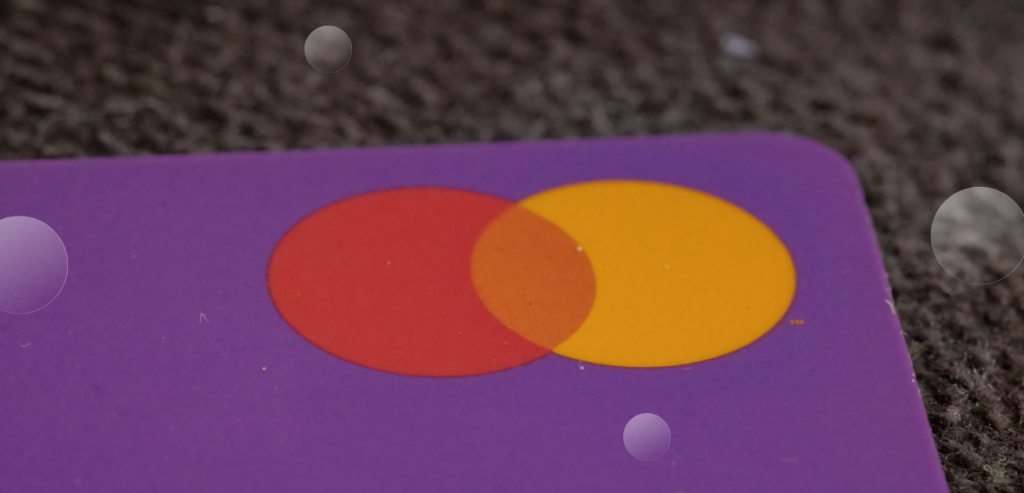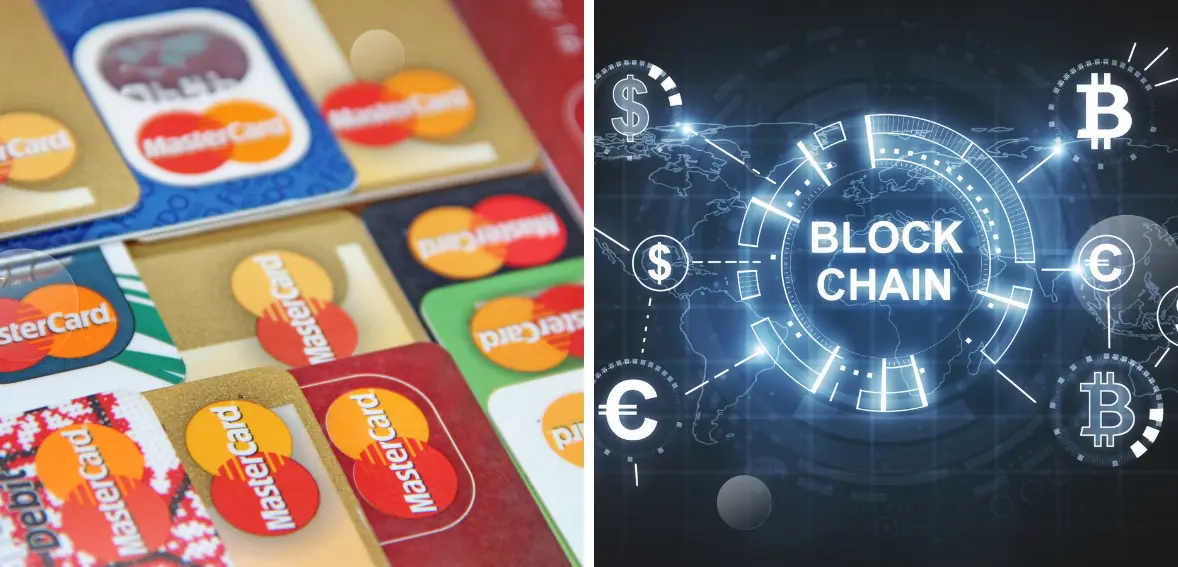MasterCard has announced upgrades to its payment processing operations for business-to-business transactions. The company will now allow businesses to use blockchain technology to transfer money via its MasterCard Blockchain API, which recently debuted at the Money20/20 Hack-a-thon in Las Vegas.
MasterCard has joined the growing list of companies using blockchain technology, including Google, Citibank, Goldman Sachs, and others.
Unlike Bitcoin, MasterCard’s blockchain technology does not rely on a cryptocurrency to operate. Instead, it transfers currencies in the same way as bitcoin, with complete ledgers included. In this way, the sender and receiver have transaction records in the currency. MasterCard says the blockchain transfer is safer and faster than the existing system. MasterCard ensures that the new blockchain technology used to process the payments is only shared between those participating in the transaction, with the blockchain guaranteeing an accurate payment record.
MasterCard and Use of Technology in Payments
MasterCard uses technology in business-to-business transactions to address international payment processing needs. Technology could make it less expensive for businesses to pay international bills. When money is sent overseas, it usually passes through several banks before arriving at its final destination and is hit with fees all along the way. MasterCard’s technology could directly connect the buyer and seller, allowing the money transfer to be completed more promptly.
According to MasterCard, the technology can be used to move more than just the transfer of money. It can also be used to track pharmaceuticals and luxury items such as handbags and diamonds by providing what is known as a proof of provenance (Documented evidence of provenance for an object can help to establish that it has not been altered and is not a forgery, a reproduction, stolen or looted art.).

The technology can be used with other MasterCard APIs for application development purposes, and software development kits are currently available in six languages. The ability to send money via the new technology must be available to the average MasterCard credit card holder. With over 35 patents on file for the cryptocurrency technology, MasterCard is the second Fortune 500 company to use the payment method. It has a settlement network of 22,000 banks and other financial institutions with offices worldwide.
Understanding Blockchain Technology
What is Blockchain?
Blockchain is a decentralized system that acts as a digital ledger, storing transaction records across a network of computers. Its transparency ensures that all participants can view transactions, enhancing trust. Each block in the chain is linked to the previous one, forming an unbroken sequence. This structure and cryptographic hashing make it virtually impossible to alter past transactions, ensuring immutability. Timestamped transaction data provides a chronological order, which is crucial for auditing and accountability.
The decentralized nature distributes copies of the ledger across multiple nodes, enhancing security by eliminating single points of failure. Blockchain’s combination of decentralization, transparency, immutability, and security makes it a groundbreaking technology with applications in various sectors beyond finance, including supply chain management, healthcare, and voting systems.
Key Features of Blockchain Technology:
- Decentralization
- Transparency
- Immutability
- Security
MasterCard Blockchain API: The Way Ahead

Exploring Mastercard’s Interest in Blockchain:
Mastercard has been closely observing advancements in blockchain technology for years. Recognizing its potential to revolutionize payment systems, Mastercard actively seeks ways to incorporate blockchain into its infrastructure. They aim to streamline payment procedures, lower expenses, and bolster security through blockchain integration. This proactive stance demonstrates Mastercard’s commitment to staying abreast of emerging technologies and leveraging them to enhance its services. By embracing blockchain, Mastercard anticipates improving efficiency and reinforcing trust and reliability in its payment network.
Partnerships and Collaborations:
Mastercard has strategically partnered with numerous blockchain technology firms and startups to delve into pioneering solutions. By collaborating with entities specializing in blockchain development, Mastercard gains access to their specialized knowledge and resources. These partnerships empower Mastercard to harness its expertise and resources effectively, facilitating the implementation of blockchain-based solutions. Through such collaborations, Mastercard endeavors to stay at the forefront of technological advancements in the payments industry. By leveraging its partners’ expertise and innovative ideas, Mastercard aims to explore and integrate blockchain technology seamlessly into its operations. This approach underscores Mastercard’s commitment to fostering innovation and driving forward-thinking solutions in digital payments.
Piloting Blockchain Projects:
Mastercard is actively testing various blockchain initiatives across multiple sectors of its operations. These pilot projects serve as real-world experiments to assess the viability and efficacy of blockchain technology. Mastercard’s exploration extends to various applications, including cross-border payments and supply chain management. By piloting blockchain projects in diverse areas of its business, Mastercard gains valuable insights into the potential benefits and challenges of integrating blockchain solutions. These initiatives demonstrate Mastercard’s commitment to innovation and willingness to embrace emerging technologies to enhance its services. Mastercard aims to identify practical use cases for blockchain technology through these pilot programs and pave the way for its broader adoption within the payments industry.
Benefits of Mastercard Blockchain Implementation

Enhanced Security:
Blockchain technology enhances security by encrypting and dispersing transaction data across a decentralized network. Mastercard can leverage this technology to fortify its security protocols and reduce vulnerabilities to fraud and data breaches. Through blockchain’s decentralized architecture, sensitive information becomes less susceptible to unauthorized access or manipulation, enhancing overall security measures. By embracing blockchain, Mastercard demonstrates its commitment to safeguarding transactions and protecting user data from potential threats, fostering greater trust and confidence among consumers and businesses.
Improved Efficiency:
Blockchain technology can streamline payment processes and shorten transaction times significantly. Through blockchain technology, Mastercard can optimize the efficiency of its payment network, resulting in quicker and more cost-effective transactions for consumers and businesses. By leveraging blockchain’s decentralized and transparent nature, Mastercard can eliminate intermediaries, simplify verification processes, and expedite settlements. It enhances the overall speed of transactions and reduces associated costs. As a result, Mastercard can provide a more seamless and economical payment experience, catering to the evolving needs of its users and reinforcing its position as a leading player in the global payments industry.
Greater Transparency:
Blockchain technology’s transparency and immutability ensure that transactions are visible and unalterable, enhancing transparency. Mastercard’s blockchain integration can improve trust and accountability within its payment ecosystem, strengthening stakeholder relationships. By leveraging blockchain’s transparent ledger, Mastercard enables stakeholders to access transactional data securely and verify the authenticity of transactions. This increased transparency fosters trust among users, merchants, and financial institutions, enhancing overall confidence in Mastercard’s payment network. Additionally, the immutable nature of blockchain ensures that transaction records cannot be tampered with, further bolstering accountability. Through the adoption of blockchain technology, Mastercard reinforces its commitment to integrity and reliability in facilitating secure and transparent transactions for all stakeholders.
Challenges and Considerations
Regulatory Compliance:
Implementing blockchain technology poses a challenge due to navigating complex regulations. Mastercard must ensure compliance with stringent rules governing financial transactions and data privacy. Adhering to existing regulatory frameworks is essential to mitigate legal risks and provide the security and confidentiality of user data. Mastercard can confidently navigate the evolving regulatory landscape by addressing regulatory concerns, fostering trust and reliability among users and regulators.
Scalability Issues:
As blockchain technology progresses, scalability emerges as a pressing concern. Mastercard must confront scalability challenges to accommodate the increasing transaction volume on its network while maintaining speed and efficiency. Addressing scalability issues ensures that Mastercard’s payment infrastructure can handle expanding demands without sacrificing performance. Mastercard can sustain its position as a reliable and efficient payment provider by implementing scalable solutions in an ever-growing digital landscape.
Future Outlook
Continued Innovation:
Mastercard is dedicated to innovation and continually explores ways to harness blockchain technology. Positioned at the forefront of advancements, Mastercard is prepared to unveil advanced solutions that elevate its services and capabilities as blockchain evolves. With a proactive stance, Mastercard aims to integrate cutting-edge blockchain features to enhance its offerings. By embracing emerging technologies, Mastercard ensures it stays ahead in providing efficient and secure payment solutions, meeting the dynamic needs of its users in an ever-changing digital landscape.
Industry Collaboration:
Mastercard acknowledges the significance of industry collaboration in promoting the widespread adoption of blockchain technology. By collaborating with various stakeholders such as banks, merchants, and technology providers, Mastercard seeks to expedite blockchain integration into the global payments ecosystem. Through partnerships and joint efforts, Mastercard endeavors to leverage collective expertise and resources to drive innovation and advance blockchain solutions. Mastercard aims to facilitate the seamless integration of blockchain technology by fostering collaboration within the industry, ultimately enhancing efficiency and security in the payments landscape.
Conclusion
Mastercard’s implementation of blockchain technology marks a significant milestone in the evolution of digital payments. Mastercard is poised to enhance security, improve efficiency, and drive innovation in the payments industry by embracing blockchain. As blockchain continues to disrupt traditional business models, Mastercard’s proactive approach ensures it remains at the forefront of technological innovation.
FAQ
How does blockchain technology enhance security in payments?
Blockchain encrypts transaction data and decentralizes it across multiple nodes, making it highly secure and resistant to tampering.
Can blockchain technology improve transaction speeds?
Yes, blockchain has the potential to significantly reduce transaction times by eliminating intermediaries and streamlining the verification process.
What are some potential applications of blockchain beyond payments?
Aside from payments, blockchain technology can be applied to various industries, including supply chain management, healthcare, and voting systems, to name a few.
Is blockchain technology regulated?
While blockchain technology is not regulated, its applications in finance and other industries are subject to existing regulatory frameworks governing data privacy and financial transactions.
How does Mastercard collaborate with blockchain technology firms?
Mastercard collaborates with blockchain technology firms through partnerships, joint ventures, and investment initiatives to explore innovative solutions and pilot projects.

